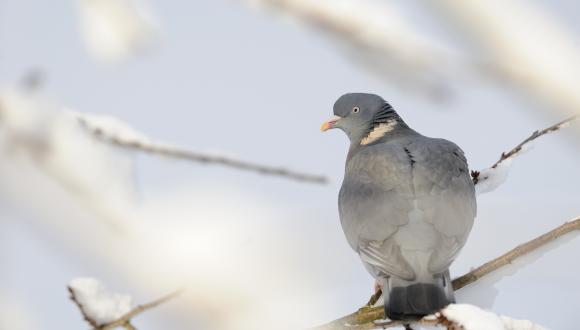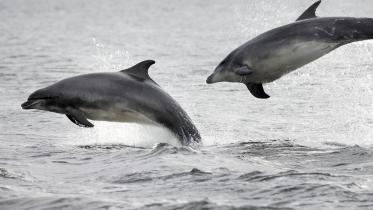General licence for birds - GL05/2024 - To keep disabled, wild-bred Schedule 4 birds for rehabilitation
General Licences allow authorised people to carry out activities that would otherwise be illegal under the Wildlife & Countryside Act 1981 (as amended). They cover situations where we are satisfied that there is no other satisfactory solution in respect of the species to which they relate and the circumstances in which the licensed action may be taken.
Terms and conditions
If you operate under General Licence 05/2024 you must meet the following terms and conditions otherwise your actions may be illegal which could lead to prosecution.
What can this General Licence be used for?
Authorised people (operators) can keep any disabled wild-bred bird listed on Schedule 4 to the Wildlife & Countryside Act 1981 (as amended); namely
Golden eagle Aquila chrysaetos
White-tailed eagle Haliaeetus albicilla
Peregrine falcon Falco peregrinus
Marsh harrier Circus aeruginosus
Montagu's Harrier Circus pygargus
for up to 15 days without registration for the purpose of rehabilitation with a view to releasing the bird when it is no longer disabled.
Who is authorised to use this General Licence?
An operator may be any of the following:
- A suitably qualified official of the RSPB (Royal Society for Protection of Birds)
- An Inspector of the Scottish SPCA (Society for Prevention of Cruelty to Animals),
- Any owner or employee of a registered wildlife charity or other such place which is officially approved by the Local authority and/or Scottish SPCA for the purpose of caring for Schedule 4 birds.
- Any person who has been a registered keeper of three disabled wild-bred Schedule 4 birds and who has subsequently notified the Animal and Plant Health Agency (APHA) that such birds have been successfully released into the wild.
- A constable or suitably experienced employee of a police force.
What other information must operators know before considering use of this General Licence?
Operators must:
- understand this General Licence and comply with its terms and conditions
- only use it for the conservation of wild birds
When and where is this General Licence valid?
Across Scotland from 1 January to 31 December 2024 unless previously revoked.
What restrictions apply to the use of this General Licence?
This General Licence cannot be used by those convicted of a wildlife crime until that conviction is considered spent in accordance with the Rehabilitation of Offenders Act 1974 (as amended), they have received an admonishment or a court discharged them absolutely.
Any person not able to use this General Licence can still apply to NatureScot for an individual licence.
What are the reporting requirements for this General Licence?
Operators must send a written record of the disabled wild-bred bird they are keeping to the NatureScot licensing team within 4 days of taking it under their control. This record must contain the following information:
- The name and address of the operator
- The name and address of the person from whom the bird was received (if applicable)
- The species of bird and the date on which it was taken into possession or control by the operator
- The time and place the bird was taken and where it is being held for rehabilitation
- The injuries sustained by the bird at the time the operator took it into possession or control and the cause of those injuries (if known), location and circumstances in which the bird was found
What other conditions must operators adhere to when using this General Licence?
- Operators must not transfer a bird they are keeping under this General Licence to any other person except when urgent medical attention is required.
- Operators must make every effort to ensure that any bird kept under this General Licence does not become imprinted or otherwise rendered unfit for subsequent release back into the wild, as a consequence of being in captivity.
Notes
1. Operators holding any disabled, wild-bred bird longer than 15 days must be registered with the APHA and hold a licence to keep the bird un-rung during rehabilitation. Applications to the APHA may also require a certificate by a qualified vet that it is not possible to return the bird to the wild within the 15 days because of its injuries or illness.
2. NatureScot may contact operators for an update on the condition of any bird kept under this General Licence within two weeks of receipt of a bird record.
3. General Licence 06/2024 permits qualified vets to keep any disabled wild-bred bird listed on this General Licence for up to six weeks without registration.
Definitions
For the purposes of this General Licence;
“NatureScot” means Scottish Natural Heritage acting under its operating name NatureScot
"wild bird" means any bird of a species which is ordinarily resident in or is a visitor to the UK or any member State or the European territory of any member State in a wild state but does not include poultry. "Bird" includes all stages from chick to adult.
"a wild-bred listed on Schedule 4 bird" means a wild bird included in Schedule 4 to the Wildlife and Countryside Act 1981 (as amended) other than a bird treated as bred in captivity within the meaning of Section 27(2) of the Act.
“wildlife crime” means any offence under the Wildlife & Countryside Act 1981, the Conservation (Natural Habitats &c.) Regulations 1994, the Protection of Badgers Act 1992, the Protection of Wild Mammals (Scotland) Act 2002, Deer (Scotland) Act 1996, Agriculture (Scotland) Act 1948, the Animal Health & Welfare (Scotland) Act 2006, the Protection of Animals (Scotland) Act 1912, the Wild Mammals (Protection) Act 1996, the Animals & Wildlife (Penalties, Protections and Powers) (Scotland) Act 2020 and the Hunting with Dogs (Scotland) Act 2023 (all as amended).
Contact
If you already have a licence number, include it in the subject line of your email, or have it to hand when you call.
Disclaimer: Scottish Natural Heritage (SNH) has changed its name to NatureScot as of the 24th August 2020.
At the time of publishing, this document may still refer to Scottish Natural Heritage (SNH) and include the original branding. It may also contain broken links to the old domain.
If you have any issues accessing this document please contact us via our feedback form.




